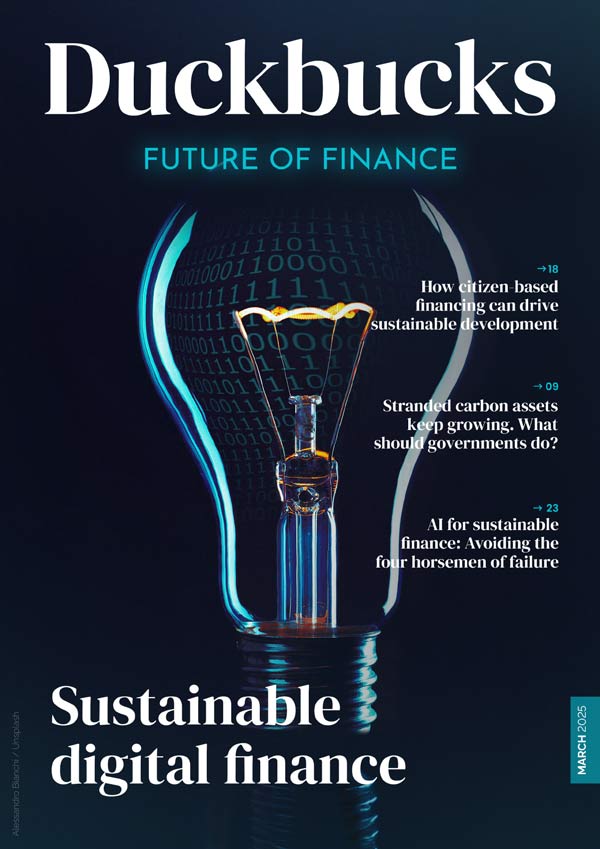Climate finance has so far largely focused on putting money into efforts to cut carbon emissions. The MSCI Sustainability Institute set out to find the businesses needed to respond to the increasingly unavoidable impacts of a hotter world.
One potential path for sustainability-minded investors is to identify firms engaged in climate adaptation and resilience—an area of analytical work currently undertaken by the Institute. Linda-Eling Lee, the Institute’s founding director, and research director Umar Ashfaq discuss this research in the March 2025 issue of the magazine Duckbucks, which explores sustainable digital finance from multiple perspectives.
The authors detail how work by the Institute, in collaboration with researchers from the investor-led Global Adaptation and Resilience Investor (GARI) working group — with support from the Bezos Earth Fund and ClimateWorks Foundation — is using artificial intelligence to identify companies that offer technologies or equipment to help governments, businesses and households prepare for and adapt to the realities of a changing climate.
Key points from the article:
- Adaptation and resilience as an investment thesis: While adaptation and resilience have long been central themes for policymakers, public finance, and nongovernmental organizations, they are now emerging as an investment opportunity. Investors looking to benefit from the increasing demand for climate resilience-related products and services may find new opportunities in this area.
- A first-of-its-kind analysis: This research is among the first to test the viability of investing in publicly traded equities to enhance climate resilience and adaptation. It may also be the first time AI has been used to prototype an investable universe of adaptation and resilience companies among listed firms globally.
- Identifying key companies: According to preliminary findings, about 800 publicly listed companies—roughly 11% of listed firms worldwide—contribute to climate adaptation and resilience. These companies span a range of industries, including weather analytics, water-efficient agriculture, supply-chain resilience, and the weatherization of power infrastructure and buildings.
“We continue to hone our findings,” write Lee and Ashfaq, who note that the Institute, in collaboration with the Asia Investor Group on Climate Change, is further refining its research to identify companies that provide climate adaptation and resilience solutions in the Asia-Pacific region, which faces high exposure to climate-related physical risks.

